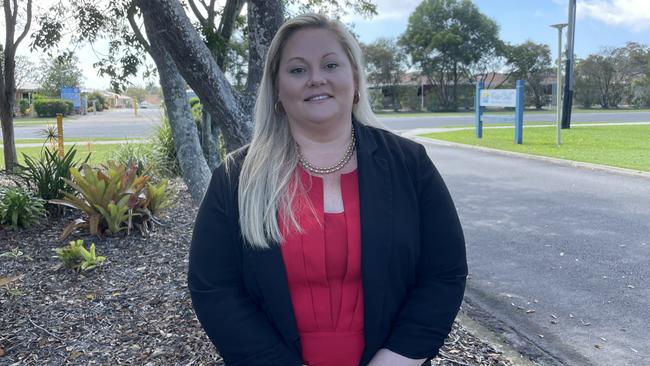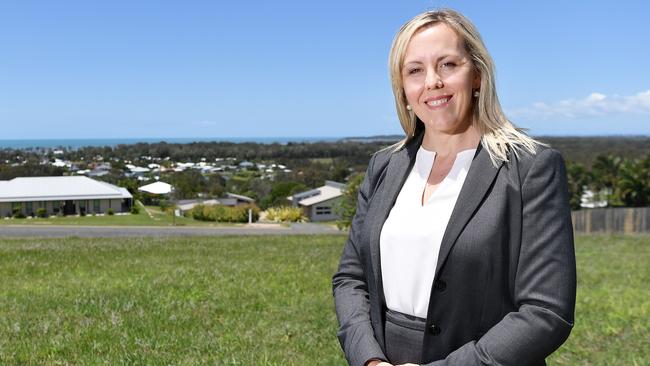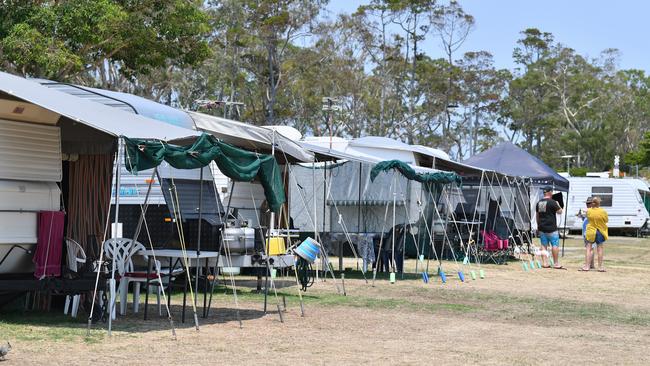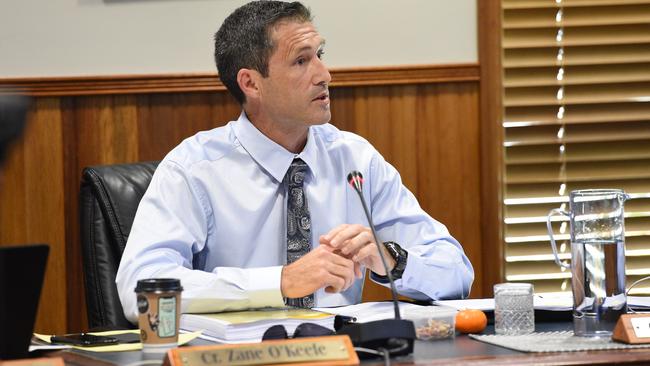Fraser Coast council progresses caravan plan to help ease housing crisis
An impassioned plea from a Fraser Coast councillor to allow friends and family to occupy caravans in backyards was met with fears from another councillor that the sight of those caravans would be more than his community could bear.
Fraser Coast
Don't miss out on the headlines from Fraser Coast. Followed categories will be added to My News.
The CEO of a prominent Fraser Coast community centre has pleaded with councillors to consider a proposal that could provide some relief to the “surge in homelessness” across the region.
Hervey Bay Neighbourhood Centre CEO Tanya Stevenson spoke at Wednesday’s council meeting about the region’s housing crisis.
She asked councillors to support councillor Jade Wellings’ proposal to allow people to accommodate victims of the region’s housing crisis in caravans on their properties.
“This has the potential to provide immediate accommodation and could allow the community to support each other during the housing shortage,” Ms Stevenson said.
There had been a “surge in homelessness” across the Wide Bay, she said.

Speaking to reporters after the meeting, Ms Stevenson said the caravan proposal was a simple idea that could allow the community to use existing resources to support one another.
“We have to look at what can we do right now to create multiple options of housing for people, and so the caravans is a wonderful option to allow community to support community,” she said.
Putting victims of the homelessness crisis temporarily in caravans was also identified as a short term goal in the Hervey Bay Neighbourhood Centre’s strategic housing plan.

Ms Wellings’ caravan proposal was first moved at a council meeting in April.
The proposal has not been easy to implement, with councillors concluding in June that a local law would need to be amended to let it happen.
Ms Wellings moved an alternate motion on Wednesday to amend that local law and enable homeowners or occupiers to let family or friends occupy a caravan in the backyard under certain conditions.
Conditions will include ensuring the caravan is in good working order and that only one caravan will be allowed per premises.
One of the amendments Ms Wellings made to her motion, was that the local law expire in December 2027, instead of the officer’s original recommendation of December 2023, to align with the state government’s housing strategy.
The amended motion sparked lengthy debate between councillors, with concerns raised about whether people could charge rent to host someone in a caravan, and how it would be policed.
Many concerns were also raised about potential noise complaints in neighbourhoods.
Councillors also discussed how effluent from waste holding tanks in caravans would be appropriately disposed of, to which council CEO Ken Diehm said there were already laws in place surrounding waste disposal.

Ms Wellings spoke passionately at Wednesday’s meeting, saying an amended local law would help those members in the community “in their time of need”.
“We have families sleeping in cars, or couchsurfing who get up every morning to go to school and work...professionals like health care workers who would love to take a job here, but can’t find anywhere to live...” she said.
“Whether you like the idea of this local law amendment or not, your community, those who elected you, deserve to have a voice and to let us know what they think of this proposal.”
Division 10 councillor Zane O’Keefe said while he shared his colleague's concerns about the housing crisis, the proposal could have “perverse community health outcomes”.
“I did a quick drive around the streets of my division in Urangan and recently found three caravans illegally parked on one street,” Mr O’Keefe said.
He debated that his community was already facing “acute neighbourhood fatigue” with construction, development and roadworks changing the character of the streets.
“This proposal would be asking my community to bear even more than they’re already bearing...” he said.
“I can’t ask my neighbours to accept proposed local law changes that could potentially lead to caravans popping up in suburban backyards.”
Also speaking against the amended motion, Darren Everard said the housing crisis was a problem that required the support of all levels of government, and making an amended law would be “jumping the gun”.

Mayor George Seymour spoke in support of the amended motion, highlighting that it was not a solution, but gave the community another option.
“This doesn’t make people do anything they don’t want to do, this simply gives people an option as they have now with a spare bedroom or a couch...” he said.
Ms Wellings’ amended motion was passed eight votes to three.
The draft amended local law can now go to the state government and community for further consultation.
The draft local law will also not allow any commercial agreements between parties.
Ms Wellings, Phil Truscott, Paul Truscott, David Lewis, David Lee, Daniel Sanderson, Denis Chapman and Mr Seymour voted in favour of the amended motion, while Mr O’Keefe, James Hansen and Darren Everard voted against it.





